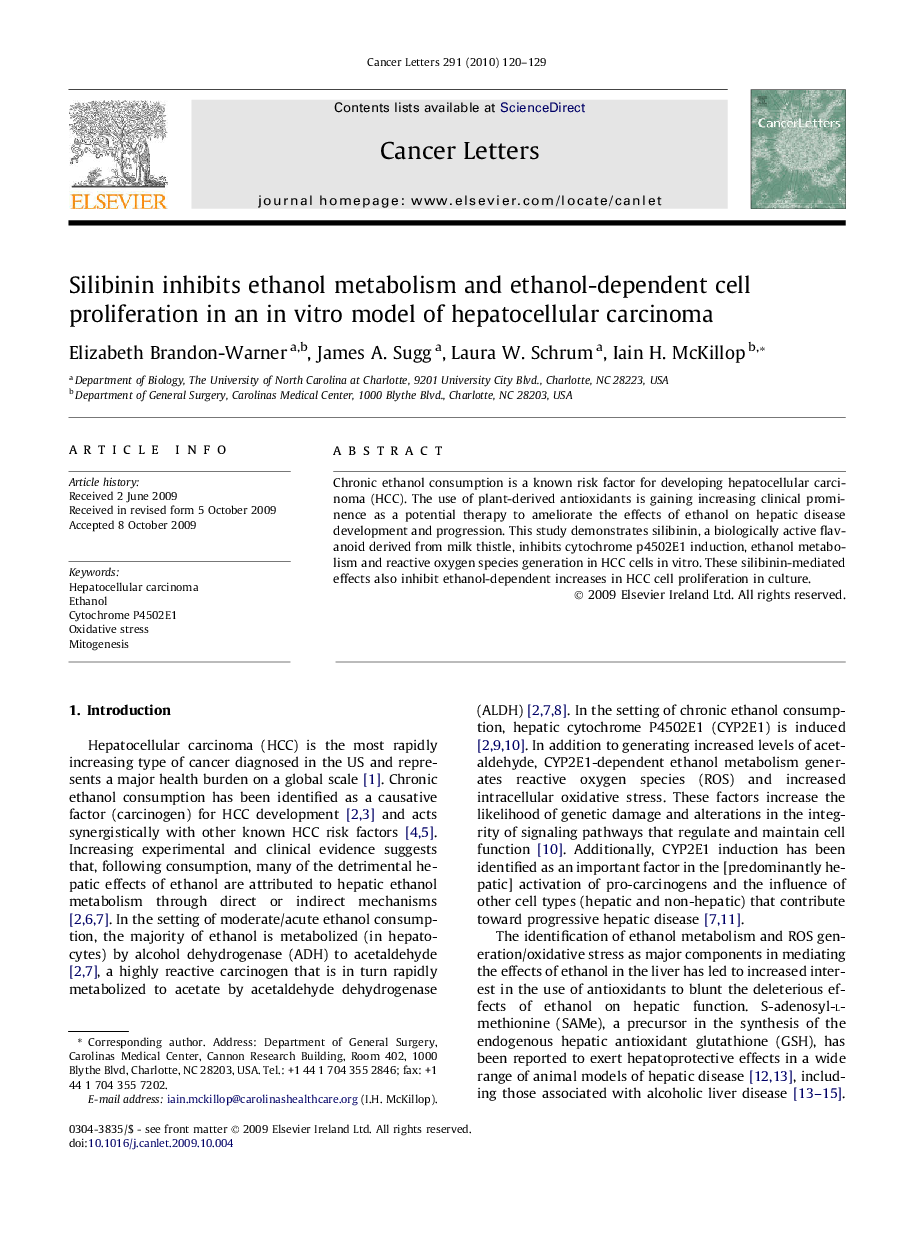| Article ID | Journal | Published Year | Pages | File Type |
|---|---|---|---|---|
| 2114040 | Cancer Letters | 2010 | 10 Pages |
Abstract
Chronic ethanol consumption is a known risk factor for developing hepatocellular carcinoma (HCC). The use of plant-derived antioxidants is gaining increasing clinical prominence as a potential therapy to ameliorate the effects of ethanol on hepatic disease development and progression. This study demonstrates silibinin, a biologically active flavanoid derived from milk thistle, inhibits cytochrome p4502E1 induction, ethanol metabolism and reactive oxygen species generation in HCC cells in vitro. These silibinin-mediated effects also inhibit ethanol-dependent increases in HCC cell proliferation in culture.
Related Topics
Life Sciences
Biochemistry, Genetics and Molecular Biology
Cancer Research
Authors
Elizabeth Brandon-Warner, James A. Sugg, Laura W. Schrum, Iain H. McKillop,
